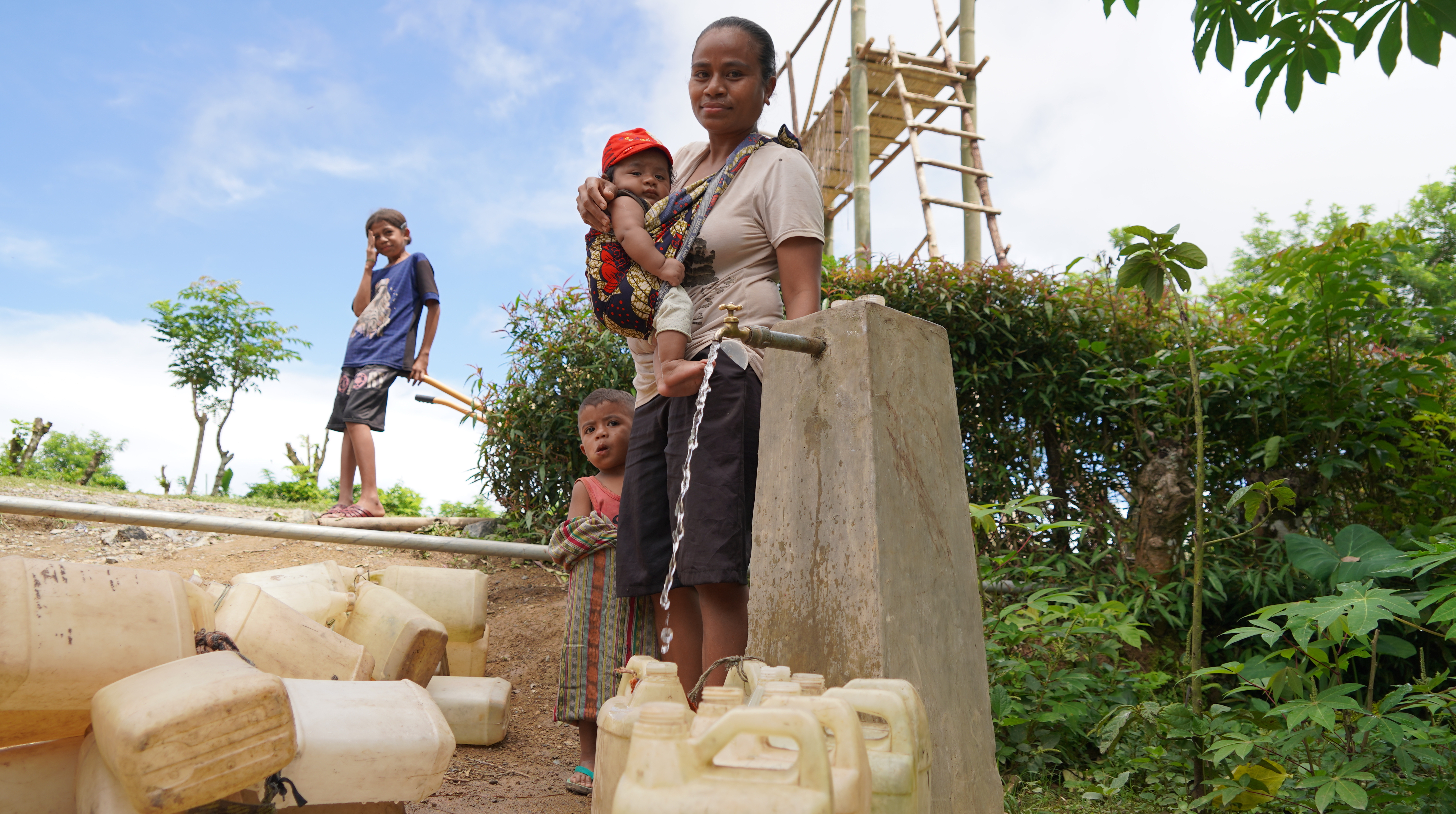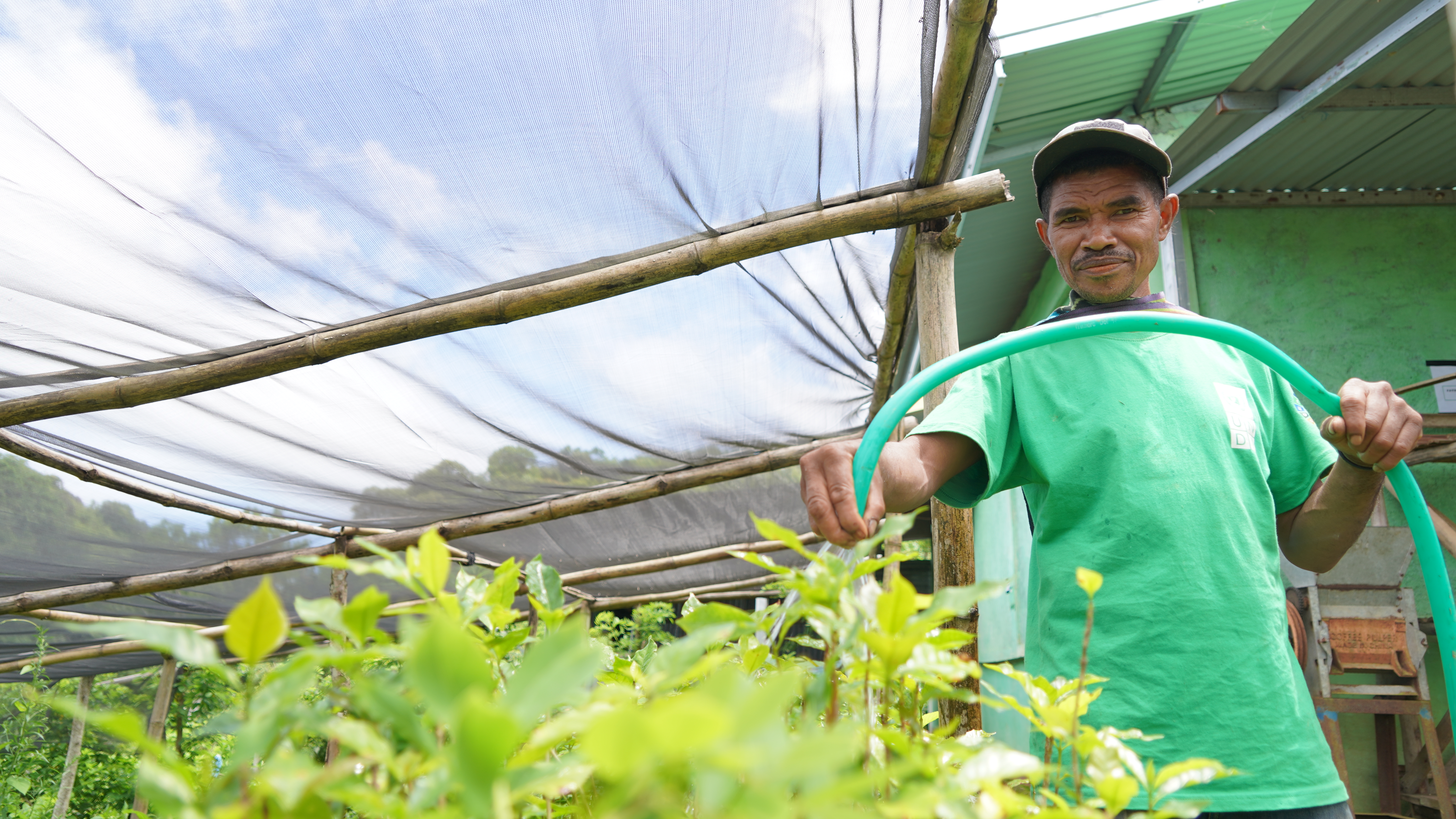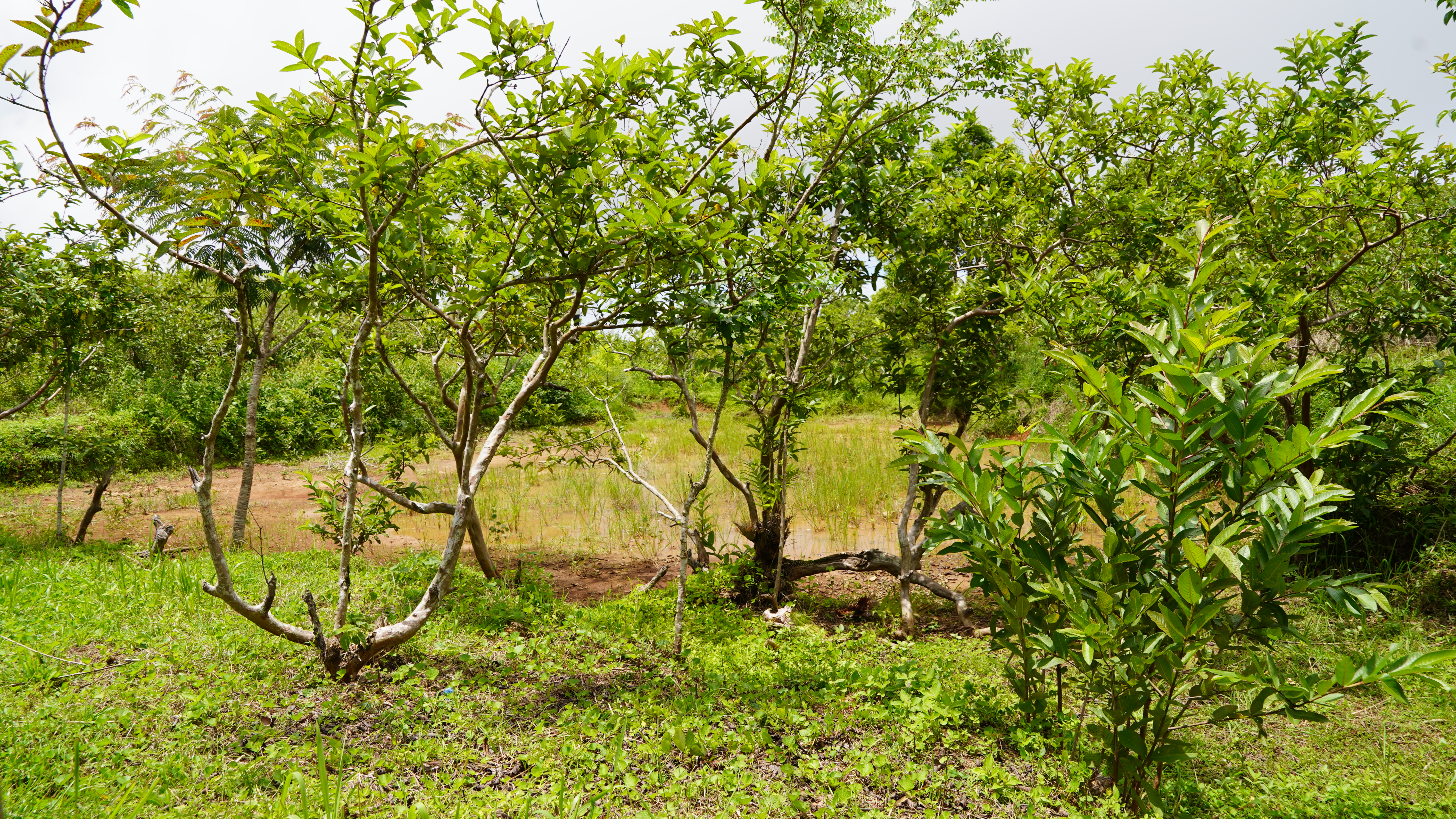The cooperative has supplied 14,500 plants for the last two years for this purpose
How Water Catchment Development Brings Life to Lakufoan Community in Oé-cusse
December 28, 2023

A mother and her two kids fetching water near their house
SAR ZEESM TL – UNDP project during 2019 - 2022 intended to increase the coffee production in Oe cusse with the supply of coffee plants to the farmers and organize them to form a cooperative for processing and marketing to strengthen the coffee value chain. As there was no facility to produce plants locally for the expansion of cultivation, 80,000 plants were initially brought from Ermera to be distributed among the farmers, and steps were taken to produce plants in a local nursery for sustainability.
The project supported a group of 38 coffee farmers (21 Males & 17 females) to form a cooperative to strengthen the coffee value chain in Oé-cusse. These farmers are part of 81 coffee farmers in Lakufoan, who will spearhead the production of plants, processing, and marketing of Lakufoan coffee through cooperative action. The Project provided technical guidance and support in establishing a processing center and a plant nursery for the group to improve their capacity. However, the cooperative had difficulty in producing coffee plants as they faced water shortages during the dry season. The project helped to improve the water availability for the community by supporting the activities for improving the water catchment for water storage.
Marcelino Neno the leader of the cooperative from Lakufoan in Pante Macassar sub-district, lives with his family in Lakufoan and leads the cooperative. The cooperative with his leadership has worked in the catchment area development activities and established a nursery for the local supply of plants for its members.” Initially we had difficulty in watering the plants in the nursery and we had to carry water from the spring down the hill 30 m “he lamented.

Mr. Marcelino Neno, team Leader of Lakuafoan Coffee Cooperative
The project introduced water catchment development to harvest rainwater through constructing infiltration ponds to increase the output of the spring which dries off during the dry period and introduced a water supply system for the community and to the cooperative, to ease the difficulty they face every day to fetch water for their daily usage. “We developed two big infiltration ponds uphill to store the water from the rain and now we see that the water output from the spring has improved a lot. We could supply water to the community every day and use the water for the nursery which could produce 7,000 coffee plants every year. We also get enough water for coffee fermenting and washing,” he explained.
Water harvesting techniques like infiltration ponds and tree planting introduced in the catchment area have increased spring output even during the dry season. 67 HH are getting water for household activities daily through a water supply system distributing water in three distribution points. Catherina Babu (56 Y) a member of the village told “I was going down the hill to fetch water every day and have to wait for hours to get three gallons (15 liters) of water. I had to carry the gallon on my head and walk back to my home almost 1 Km away. Sometimes in the dry season, I cannot get water every day. Now I could get water near my house and get 10 gallons (50 liters) of water daily “she said happily showing her betel-tainted teeth. The project has supported the coffee farmers with 94,500 coffee plants during the period of 2019 – 2022 to expand the coffee area from 30ha to 83 ha. The cooperative has supplied 14,500 plants for the last two years for this purpose. Another three nurseries also have been started with groups of coffee farmers which could supply 6,000 plants each annually for the expansion of coffee cultivation in Oe cusse.

Infiltration pond to harvest rainwater

 Locations
Locations